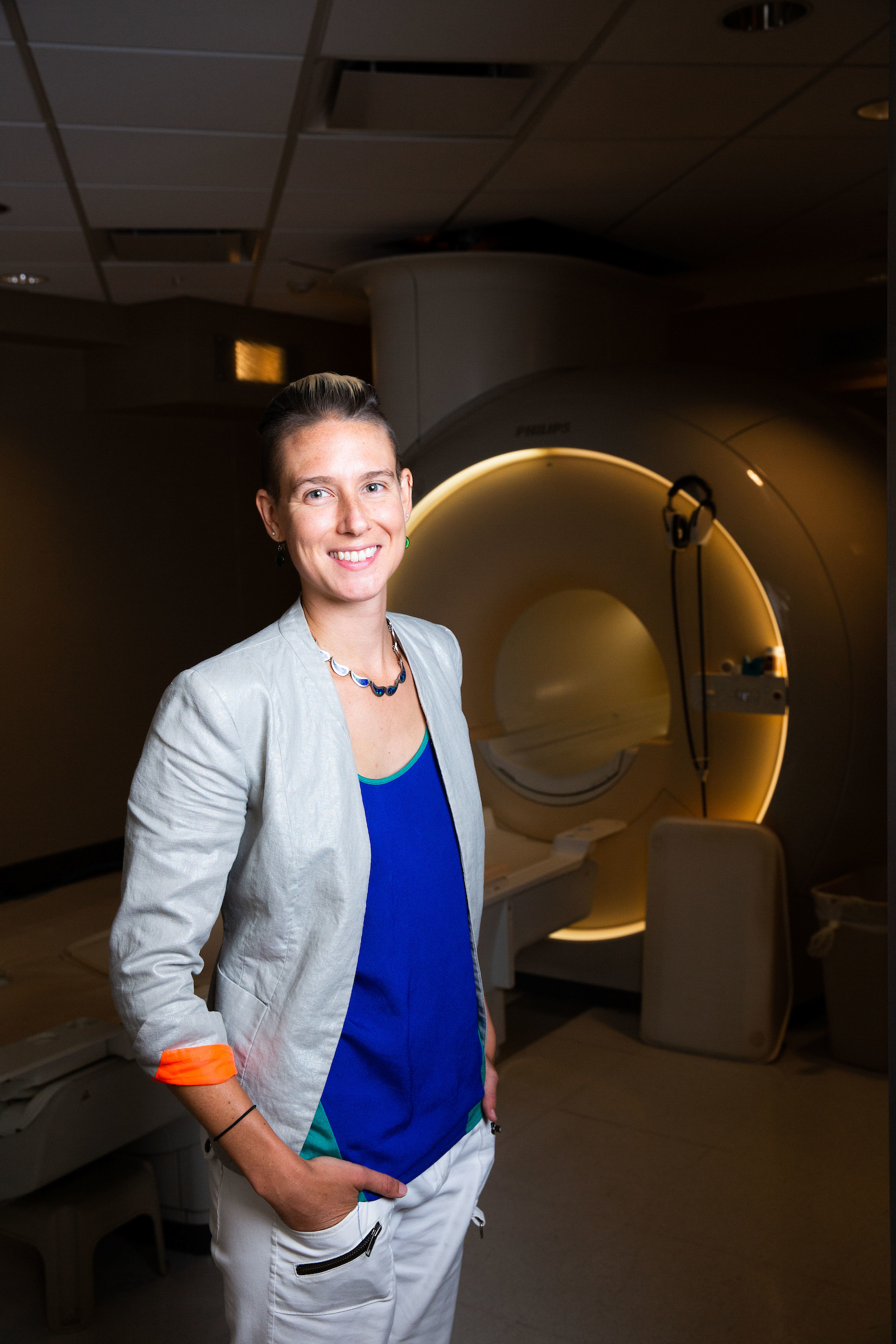How mindfulness-based stress reduction can improve quality of life in people with autism

The practice of mindfulness was often touted throughout the pandemic as a useful tool for dealing with an unforeseen life stressor. As College of Health Solutions Assistant Professor Blair Braden recently discovered, mindfulness is also a useful tool for dealing with the particular stressors associated with autism spectrum disorder.
“Initially, most of the research in my lab was looking at how aging affects individuals with autism on a cognitive level,” said Braden, who directs the Autism and Brain Aging Laboratory at Arizona State University. “But one of the things we didn’t expect was that we saw very consistently a lot of struggles with depression and anxiety, as well as physical health, that contribute to quality of life.”
ASU College of Health Solutions Assistant Professor Blair Braden.
In a paper published this month in the journal Quality of Life Research, Braden and colleagues detail two separate studies in which they set out to better understand the factors that affect quality of life in adults with autism, whom studies have shown consistently report worse functional health and well-being compared with their neurotypical peers.
The researchers found that both age and sex play a role, and that both mindfulness and relaxation education can improve quality of life in adults with autism, but mindfulness provided specific benefits in relation to how autistic individuals view their disability-associated limitations that relaxation education did not.
The first study employed a survey to evaluate the effects of sex and age. Sixty-seven adults with autism spectrum disorder and 66 neurotypical adults answered questions about their physical and mental health. Both men and women with autism reported lower mental health quality of life compared with their neurotypical counterparts, but only women with autism reported lower physical quality of life compared with neurotypical adults.
“This is kind of consistent with the larger picture of how autism manifests in girls and women,” Braden said. “Women seem to carry a greater burden across the board.”
Interestingly, researchers also found that among adults with autism, older women reported better mental health than men, whom age didn’t appear to have an effect on.
The second study sought to compare the effects of a mindfulness-based stress reduction (MBSR) intervention to those of a relaxation education intervention on quality of life in adults with autism. Those who received the MBSR intervention were not only taught mindfulness techniques by a trained practitioner, they were also given time to practice the techniques during the class. Those who received the relaxation education intervention were provided with information on relaxation techniques from the National Institutes of Health, but were not given time to practice the techniques during the class.
Researchers found that the MBSR intervention improved disability-related quality of life (which includes both physical and mental health aspects of disability) in adults with autism over and above the relaxation education intervention, but both interventions improved mental health-related quality of life. In addition, both interventions were more effective for overall health-related quality of life improvements in women with autism compared with men with autism.
“There is some research about the psychosocial mechanisms of how mindfulness works in general,” Braden said about the difference in results between the sexes. “When it comes to personality characteristics like openness and empathy, which are thought to improve the effects of mindfulness, women tend to score higher in general than men. But people with autism are known to struggle with empathy, so we’re not sure why we’re seeing that here.”
Overall, the researchers were able to conclude a few things:
- Men and women with autism spectrum disorder do not experience equivalent health-related quality of life reductions, and difficulties associated with the disorder may change over the lifespan.
- Psychosocial interventions broadly may only be effective for improving health-related quality of life in women with autism spectrum disorder, rather than both sexes.
- MBSR may have specific efficacy for improving disability-related quality of life in men and women with autism spectrum disorder.
Ideally, the researchers say, these findings can be expanded and incorporated into precision medicine strategies for improving quality of life in adults with autism spectrum disorder, across the life span.
“Our findings show that we need to be thinking about how autism affects adults based on their age and sex,” Braden said. “We likely also need to take a personalized medicine approach to how we treat some of these difficulties in future interventions.”
Top photo courtesy of iStock/Getty images
More Health and medicine
College of Health Solutions medical nutrition student aims to give back to her Navajo community
As Miss Navajo Nation, Amy N. Begaye worked to improve lives in her community by raising awareness about STEM education and health and wellness.After her one-year term ended last month, Begaye’s…

Linguistics work could improve doctor-patient communications in Philippines, beyond
When Peter Torres traveled to Mapúa University in the Philippines over the summer, he was shocked to see a billboard promoting Arizona State University.“It wasn’t even near the university,” said…

Turning data into knowledge: How Health Observatory at ASU aims to educate public
This is how David Engelthaler described his first couple of months on the job as executive director of the Health Observatory at Arizona State University:“It’s been a little bit of drinking from the…
